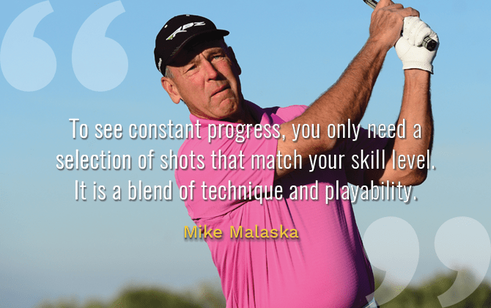|
With aging we have to realize and accept that we are breaking down and preparing to leave this world. It stinks but with acceptance comes the knowledge that we need to be taking steps to make our process easier and allow us to enjoy our lives and experiences.
With aging our digestion slows and we find that we have more food sensitivities because of this we sometimes need supplements to help keep us moving and feeling better. Today I want to address the top three, in my book. My hope would be that we could get these through our food but we all find ourselves falling short of a less than ideal diet. I don't want to discuss which diet is best, I want to discuss what our bodies NEED. Collagen In the Greek language it is literally translated 'glue'. With 16 different types of collagen in our bodies it is found in all our connective tissues, bones, skin, joints, and organs. With aging our bodies are creating less and a lower quality than when we were in our 20s and our modern diet we are consuming less and less within our food. Naturally collagen is found in the skin of chicken and pork, bones and connective tissue of all animals, and clear gelatin. While we can consume more connective tissue of animals we circle back to slowing digestion as we age, when we eat the above the proteins break down into amino acids and then reassemble as a number of nutrients. We aren't getting what we need from the food we eat because as we age we aren't able to consume enough collagen at the rate it is breaking down, in comes the need for a supplement. Supplements are already bio available to use as collagen builders. Collagen powders are typically tasteless so it is easy to add them to a variety of meals. I recommend using a high quality collagen supplement with few fillers. Types I, II, III, IV are the four primary collagen types, taking a supplement that has all four types is optimum, unless you are recovering from a surgery then it is helpful to be more specific. 2017 study showed the use of collagen supplements to protect your joints from osteoarthritis and increased damage from osteoarthritis. Another study in 2019 showed an increase in muscle mass in older men. More and more studies are trickling out about the usefulness of a quality collagen supplement. Magnesium If you are one of my clients we have talked about magnesium because it is the 4th most abundant mineral in our body! Low magnesium is linked to depression, high blood pressure, heart disease, muscle weakness, dementia...wow...when we look at the prevalence of the above conditions in our society it makes you wonder if we are a nation of magnesium deficiencies. Few people hit the daily recommendations through food. We need to be consuming, on a daily basis, high amounts of greens, salmon, avocados, tofu, almonds, etc. But, as discussed earlier, our digestion is slowing and our absorption isn't as good as it once was. It just becomes too hard to take in what we need as we age with food alone. I am not dismissing a good, healthy diet but reality is as we age we need to eat less to maintain a healthy weight, we develop more food sensitivities, and our digestion itself is slowing down so we need some supplements. There are so many TYPES of magnesium and each is a little different offering something different to the body. I recommend using a magnesium complex that has magnesium gluconate and magnesium glycinate in it. Be cautious of any supplement using magnesium carbonate or citrate, both act as a diuretic. Take your magnesium supplement before bed, magnesium has also been showed to help with quality of sleep. B Complex The B complex I am talking about contains 8 B vitamins. This is the only vitamin that you should be able to get through your food on a daily basis but, again, with slowing digestion make sure your doctors are testing for deficiencies. B vitamins are found in dairy, fish, greens, veggies, whole grains, beans, nuts...so, if you are eating healthy you should be able to get enough to keep your energy levels up and help with brain function. If you find yourself struggling with energy or fogginess call your physician and have a test done to see where you are at. If you are borderline with a good diet, snag a quality supplement...if you are borderline with a bad diet, eat better! That's all for now, I'm off to see clients and just had a few moments...remember to eat well daily, move daily, and laugh daily. There’s a ton of nutritional information and advice circulating out there, and it can be overwhelming and confusing to separate fact from fiction. As the clinic prepares to bring in Metabolic Analysis System to help you find what will work with your metabolism and body I wanted to give you some things to consider as you navigate all the fads and gimmicks.
What’s being said? Take a look at the claims and benefits touted for products and diet plans. See whether there’s an explanation for how to receive or achieve the benefits. Lastly, pay attention to what’s required to follow the plan or use the product. Some red flags include:
Who’s saying it? Make sure that the information is coming from a credible, reliable source. Look at the person’s credentials and qualifications, as well as their intentions for providing nutritional guidance. Some red flags include:
The language and tone can indicate the credibility of a source. Look for sources that are neutral and unbiased in the wording and approach they use when presenting nutritional information. Some red flags include:
How might it fit into your lifestyle? If you want to apply nutritional information to yourself or your family, you must consider whether it will be sustainable long term. Think about safety, taste, cost, schedule, culture, stress, and overall feasibility. You’ll also want to consider potential impacts on all aspects of your well-being — physical, social, emotional, mental, and financial. Make sure to meet with your doctor or dietitian before starting any diet plan or product to ask whether it’s safe and appropriate for you. Some red flags include:
Where else is it being talked about? Just because information has become popular and mainstream doesn’t necessarily mean it’s credible or accurate. Look beyond the media hype. Do a quick search in a research database, such as pubmed.gov, to see whether the trend has peer-reviewed science to back up its claims. Some red flags include:
The Bottom Line Nutritional information is everywhere — and frankly, it can be exhausting. Using a thoughtful, guided approach to efficiently sort through it all can help save you from wasting your valuable time, money, and energy on products and diets that are unnecessary, unsustainable, and potentially unsafe. When in doubt, ask questions, think critically, and stay curious. When there are rules or restrictions for food, stress and guilt often come with them. This can spiral into disordered eating or eating disorders, particularly in adolescent and teenager populations. Momentum promotes an All Foods Fit philosophy. This means that there are no “good” or “bad” foods, and all foods have a place on the plate, because there are so many different reasons to eat different foods — from house-made pizza and cookies to fresh fruits and vegetables and everything in between. Momentum believes that there is no one perfect diet, no one absolute when it comes to food. Food is fuel for our bodies and when we see that every body has different needs we must then realize that going 100% plant based may be healthy for one person but harmful for another. Bringing the Metabolic Analysis System onboard at the end of February will be just one tool to help you find what your body needs and get you to your goals! Metabolic Testing will provide a 360-degree view of your metabolic, heart & lung function. This will be able to serve as a foundation for your workout & nutrition plans to help you accomplish your fitness goals but it will also help those suffering with chronic pain. Measuring the impact of chronic pain on your heart, lungs, and muscles is important. We will then be able to draft movement and therapy programs that are tailored to your own body's needs. I don’t know about you, but this year, here and there, I’ve experienced moments where I’ve wanted nothing more than to throw myself a pity party. Plans had to be canceled, a personal disappointment occurred, or I was simply having a bad day. It’s okay to get in these funks. Life is hard, and we shouldn’t force ourselves into fake positivity just to try to forget about the hard moments in life. However, this is where gratitude comes in.
Gratitude isn’t positivity. It’s appreciation. For the good, bad, and ugly moments and experiences that have gotten you this far. We often get so wound up in getting to the next best thing, that we forget the journey: the who, the what, and the why that brought us to now. Over the next few days, take some time to look back on and express gratitude to what has gotten you to where you are. The Who Let’s first discuss the who. Who has pushed you, supported you, and not given up on you, even when you wanted to give up on yourself? What sacrifices have they made to help you accomplish your goals? How can you now turn around and try to support them? The What What experiences have you gone through that have made you who you are? Did that one impossible project at work force you to learn a skill that has completely changed your career path for the better? Did the rough moments you faced growing up teach you to show compassion and kindness to others, because that’s what you needed at that time? What has made you who you are? The Why Why do you continue working tirelessly to do and be better? Is there a change you want to see in the world? Children you want to set a good example for, so they know that they too can achieve great things? What motivates you to keep pushing when extrinsic things aren’t enough? While 2020 certainly turned a different direction than we had all planned, we can choose to see the beauty in the hand we’ve been given. For me, 2020 has reminded me of my priorities and what truly matters to me. What I’m thankful for. Who I’m thankful for. Why it matters. Keep pushing, but don’t forget to have an attitude of gratitude. By Debi Douma-Herren  Golf if open in Wisconsin! …but with limitations and precautions so when your range time is limited, here is how to get loose in a hurry and ready to hit that first ball. Golf is the type of game in which you can set yourself up for failure before you hit your first tee shot. That is why a thorough but efficient warm-up routine is essential if you want to play your best. In this video, Mike Malaska, National PGA Instructor of the Year, will take you through an amazingly simple, but effective, warm-up to help prepare your mind and body for the golf course. Performing a proper warm-up can prevent you from having to make a load of fixes. If you use hitting balls to warm up, your golf swing will feel different every time. Golf is a mental game; the video prepares not only your body but your mind…preparing it for the movement you are about to ask it to perform. IMPORTANT: if you choose to skip watching the video do NOT start your warmup with rotation!! https://www.youtube.com/watch?v=SHP70Xv14kY Momentum is open and looking forward to our 2020 golf season, we are here to help your body to perform and feel better before and after each round. Book now! |
AuthorSA little from Dr. Dan, a little from Lisa but always a lot of good stuff! Archives
January 2024
Categories
All
Or
|
Your Orthopedic Wellness Clinic
Located at:
285 N Janacek Rd, Suite C
BROOKFIELD, WI
285 N Janacek Rd, Suite C
BROOKFIELD, WI
HOME TO APPROVED THERAPIST FOR:
©2022 MOMENTUM MOVEMENT CLINIC

 RSS Feed
RSS Feed





